Chihuahua Health: What You Need to Know
Chihuahuas are a small breed with a big personality. Originating from the Mexican state of Chihuahua, they typically weigh around 6 pounds and stand between 5-8 inches tall. With a lifespan ranging from 12 to 16 years, these tiny companions are among the longest-living dog breeds. Despite their robust spirit, Chihuahuas come with unique health considerations that owners should be aware of.
Key Takeaway: Understanding and addressing common Chihuahua health issues can significantly improve your pet’s quality of life and potentially extend their lifespan.
What You Will Learn in This Guide
This comprehensive guide will explore:
- Common health issues affecting Chihuahuas, including eye problems, heart disease, and dental concerns.
- Lifestyle factors that impact Chihuahua health such as diet and exercise.
- Preventive measures to ensure your Chihuahua remains healthy and happy.
- Genetic health problems specific to the breed.
By the end of this guide, you’ll be equipped with valuable knowledge to help your beloved Chihuahua thrive!

Common Health Issues in Chihuahuas
1. Eye Problems
Chihuahuas may be small, but their health problems can be quite significant, especially when it comes to their precious peepers. Some of the most prevalent eye conditions affecting this breed include:
- Glaucoma: This condition occurs when there is an increase in pressure within the eye, leading to potential vision loss if left untreated.
- Dry Eye (Keratoconjunctivitis Sicca): A common ailment where the eyes do not produce enough tears, resulting in dryness, irritation, and discomfort.
- Cataracts: These are cloudy areas in the lens of the eye that can impair vision. Chihuahuas are prone to developing cataracts as they age.
Symptoms of eye problems can vary but typically include:
- Excessive tearing or discharge
- Redness or swelling around the eyes
- Squinting or excessive blinking
- Cloudy or opaque appearance in one or both eyes
- Changes in behavior, such as bumping into objects or hesitance to navigate familiar spaces
Chihuahua owners should remain vigilant for these signs. Early detection and intervention are crucial for maintaining your dog’s vision and overall health.
When to seek veterinary care? If you notice any of the above symptoms or changes in your Chihuahua’s behavior regarding their eyesight, it’s time to pay a visit to the vet. Regular check-ups will also help catch potential issues before they escalate.
Understanding these common diseases in Chihuahuas not only helps with managing their health but also enhances their quality of life. As these tiny companions rely heavily on their sight, ensuring that their eyes remain healthy is essential for their happiness and well-being.
With proper attention and timely veterinary care, you can help prevent severe complications from these eye conditions and keep your Chihuahua’s twinkling eyes bright and clear!
2. Heart Disease
Chihuahuas, though tiny in size, can face significant challenges with heart disease. Awareness of common types can lead to early detection and better management. Here are the prevalent heart conditions:
- Valvular Disease: A condition where the heart valves weaken over time, leading to irregular blood flow.
- Congestive Heart Failure (CHF): This occurs when the heart struggles to pump blood effectively, causing fluid buildup in the lungs and other organs.
Signs and Symptoms to Watch For:
- Persistent coughing or wheezing
- Difficulty breathing or rapid breathing
- Lethargy or decreased activity levels
- Fainting or collapsing episodes
Recognizing these symptoms early is crucial for Chihuahua health. Regular veterinary check-ups can help monitor heart health and allow for timely interventions. Keeping a close eye on your Chihuahua’s behavior can make all the difference in managing these common diseases in Chihuahuas.
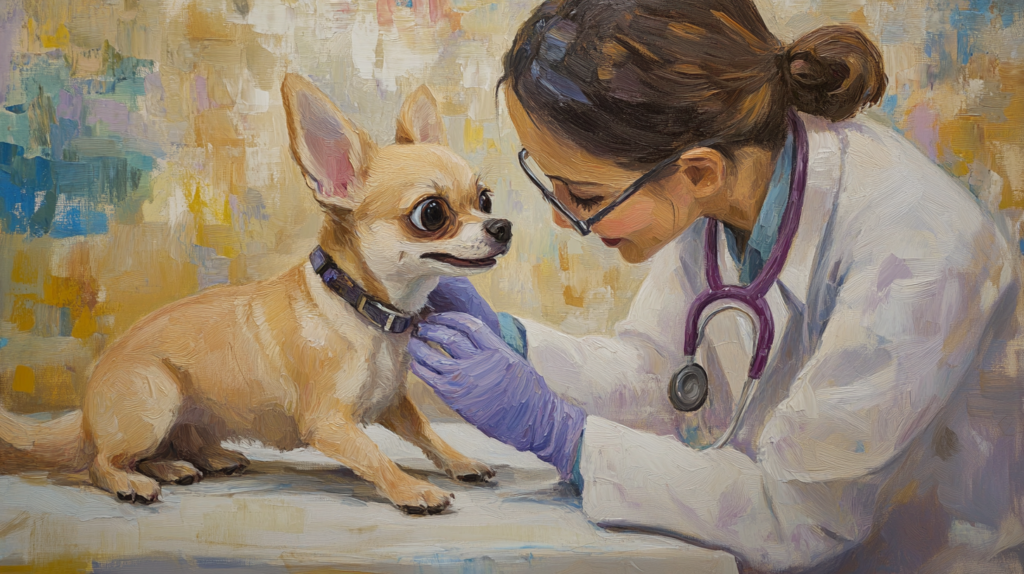
3. Patellar Luxation
Patellar luxation is a common knee joint condition frequently observed in Chihuahuas. This condition occurs when the patella, or kneecap, dislocates from its normal position. It can be classified into two types: medial (towards the inside) and lateral (towards the outside).
Causes:
- Genetic predisposition
- Abnormal bone structure
- Trauma or injury
Symptoms to Watch For:
- Limping or skipping while walking
- Difficulty standing up after lying down
- Frequent licking of the knee area
- Pain when touched
Treatment Options:
- Conservative management: Weight management and physical therapy for mild cases.
- Surgical intervention: Necessary for severe cases to realign the kneecap.
Early detection of patellar luxation is crucial for better outcomes. Regular veterinary check-ups can help identify this issue, contributing to your Chihuahua’s overall health and well-being. Addressing this common health issue proactively ensures your furry friend maintains their playful spirit!
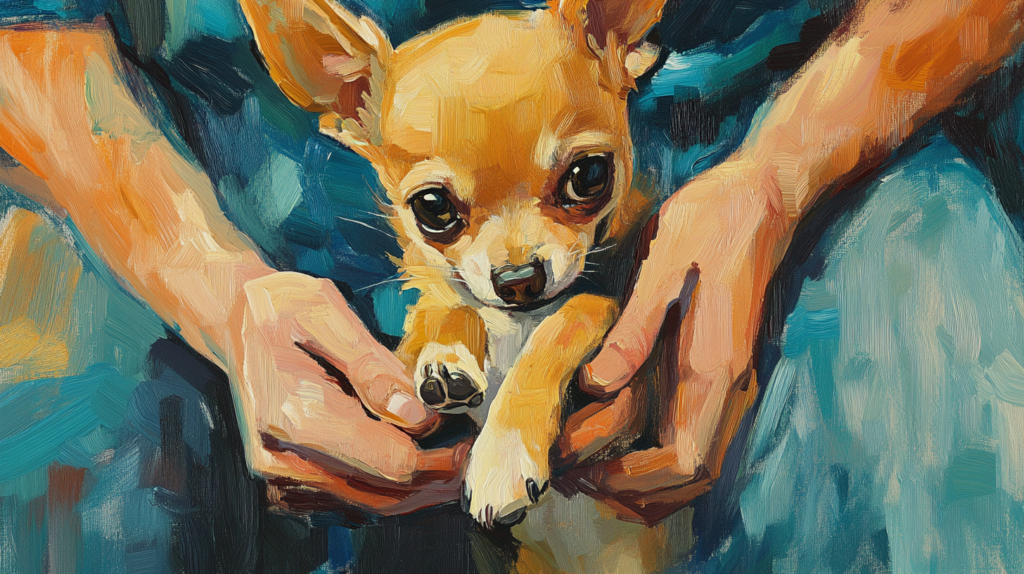
4. Dental Problems
Chihuahuas are not just adorable companions; they also come with some common health issues that owners should be aware of. One significant concern is dental problems. Due to their small mouths, Chihuahuas often face overcrowding of teeth, making them prone to periodontal disease. This condition can lead to painful infections and tooth loss if not addressed promptly.
Key Points on Chihuahua Dental Health:
- Periodontal Disease: Affects the gums and can result in serious complications.
- Symptoms to Watch For: Bad breath, difficulty eating, and swollen or bleeding gums.
Maintaining good oral hygiene is vital for your Chihuahua’s overall health. Here are some tips:
- Regular Teeth Brushing: Aim for at least two to three times a week.
- Dental Chews: These can help reduce plaque buildup.
- Routine Vet Check-ups: Essential for early detection of dental issues.
Addressing these Chihuahua dental problems proactively leads to healthier, happier pups.
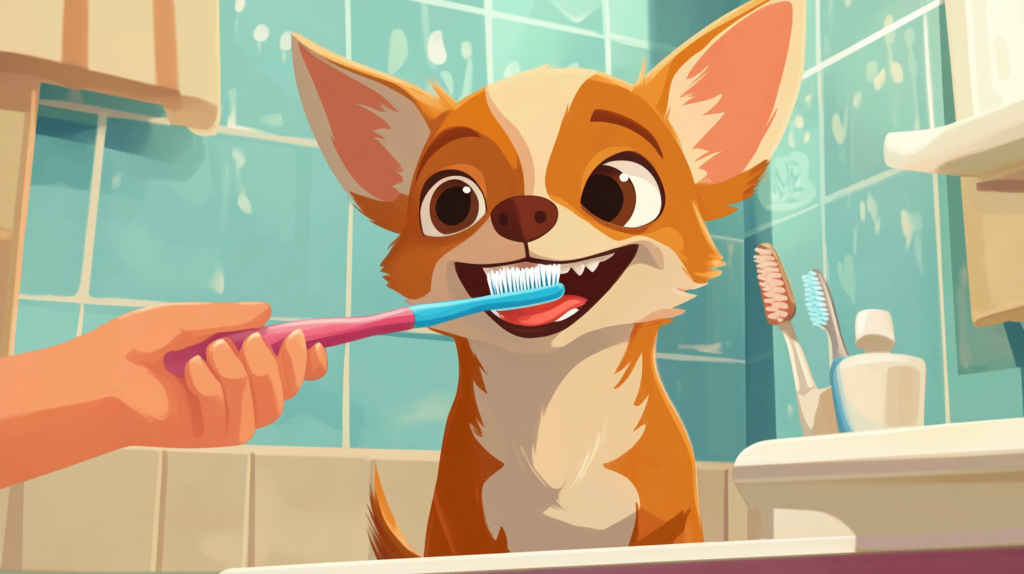
5. Hypoglycemia
Hypoglycemia, a condition characterized by low blood sugar levels, poses a unique challenge for Chihuahuas. This issue is particularly prevalent in young or toy-sized Chihuahuas. Understanding the causes and symptoms of hypoglycemia can be crucial for ensuring your furry friend’s well-being.
Causes:
- Inadequate food intake
- Stressful situations
- Excessive exercise
Symptoms to Watch For:
- Weakness or lethargy
- Shaking or trembling
- Disorientation or confusion
Management Strategies:
- Regular Feeding Routine: Feed small meals throughout the day to maintain stable blood sugar levels.
- Emergency Snacks: Keep glucose gel or honey on hand for quick energy boosts during hypoglycemic episodes.
Being vigilant about these factors significantly contributes to managing Chihuahua health problems. Early detection and appropriate intervention are vital for better outcomes in cases of hypoglycemia, ensuring your little companion stays happy and healthy.
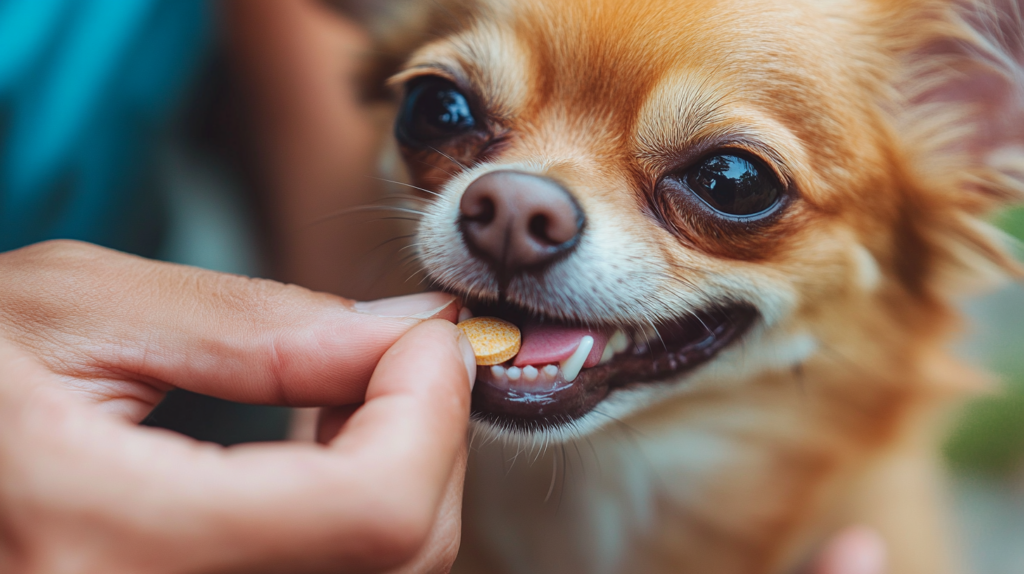
Other Notable Conditions to Watch For
While Chihuahuas are generally sturdy little companions, a few less common yet serious health conditions can arise. It’s vital for owners to be aware of these potential issues:
1. Collapsing Trachea
This condition occurs when the cartilage rings in the trachea weaken. Symptoms include a honking cough, difficulty breathing, and gagging. Keeping your Chihuahua on a harness instead of a collar can help alleviate pressure on their throat.
2. Legg-Calve-Perthes Disease
Affects the hip joint, leading to pain and limping. This disease occurs when the blood supply to the femoral head is disrupted, causing bone degeneration. Owners may notice their pup favoring one leg or showing signs of discomfort while moving.
3. Hydrocephalus
Characterized by an accumulation of fluid in the brain, this condition can lead to neurological issues. Signs might include an unusually large head, seizures, or trouble walking. Early intervention is crucial for managing symptoms.
Being vigilant about these conditions ensures that your Chihuahua remains a vibrant part of your life for years to come.
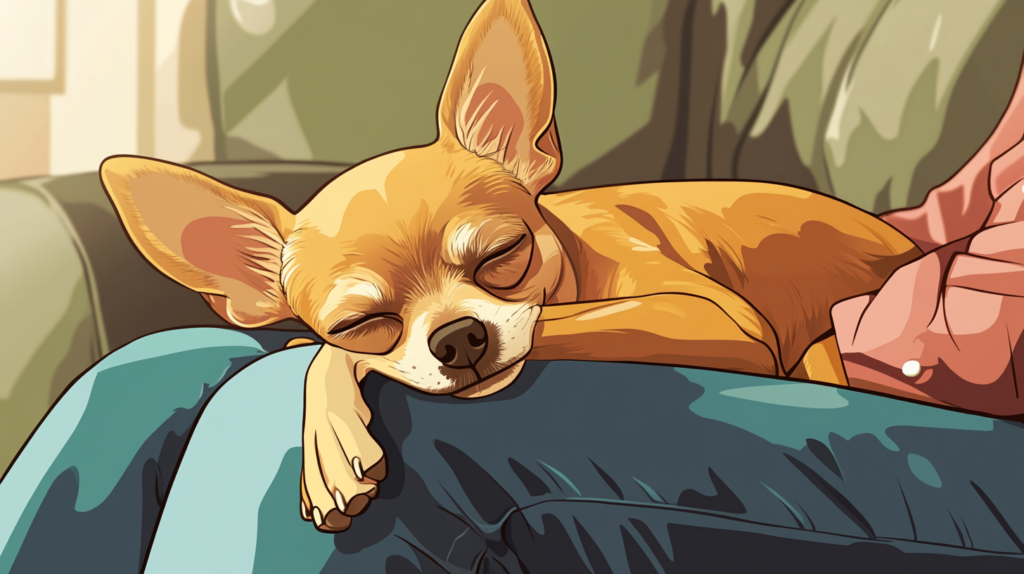
Genetic Health Problems in Chihuahuas
Chihuahuas, like many purebred dogs, can be susceptible to specific genetic health problems. Understanding these predispositions helps owners take proactive measures. Here are some common inherited disorders found in the breed:
- Patellar Luxation: A hereditary condition where the kneecap dislocates from its normal position, often leading to pain and mobility issues.
- Legg-Calve-Perthes Disease: This condition involves a degeneration of the hip joint, leading to arthritis and discomfort, primarily affecting younger Chihuahuas.
- Heart Disease: Many Chihuahuas are prone to congenital heart defects, particularly mitral valve disease, which can develop as they age.
- Hydrocephalus: An accumulation of cerebrospinal fluid in the brain can lead to neurological issues. Signs include an unusually large head and behavioral changes.
Genetic testing can identify certain conditions early, allowing for timely interventions. Responsible breeding practices also play a crucial role; ensuring that breeders screen for these genetic issues can help reduce their prevalence within the breed. Understanding these genetic factors is essential for every Chihuahua owner aiming to provide the best care possible for their furry friends.
Lifestyle Factors That Impact Chihuahua Health
1. Diet Considerations for Optimal Health
A proper Chihuahua diet is essential for ensuring a vibrant life full of energy and joy. These little dynamos require a specific nutritional balance to meet their unique needs. Here are some key aspects to consider:
- High-Quality Protein: Chihuahuas thrive on protein-rich diets. Look for high-quality sources such as chicken, turkey, or fish. Avoid fillers like corn and soy, which offer little nutritional value.
- Healthy Fats: Incorporating healthy fats such as omega-3 and omega-6 fatty acids supports skin health and promotes a shiny coat. Ingredients like fish oil or flaxseed can be beneficial.
- Carbohydrates: Small amounts of whole grains or veggies provide necessary carbohydrates for energy. Sweet potatoes and brown rice are excellent choices that are gentle on tiny tummies.
- Portion Control: Chihuahuas have small stomachs, leading to potential overeating if not monitored. Follow feeding guidelines based on age, weight, and activity level to avoid obesity.
- Scheduled Feeding: Establishing a regular feeding schedule helps regulate metabolism and ensures your pup gets the nutrients they need at consistent intervals. Aim for two to three small meals per day rather than free-feeding.
- Hydration: Fresh water should always be available, especially if you’re feeding dry kibble. Proper hydration supports overall health and aids in digestion.
When selecting food, consider brands formulated specifically for small breeds. These often contain the right balance of nutrients tailored to their size and energy requirements.
Regular check-ins with your veterinarian about your Chihuahua’s diet can help adjust portions or ingredients as needed based on lifestyle changes or age-related needs.
By focusing on these dietary considerations, you can help your Chihuahua maintain an optimal weight, promote healthy growth, and support overall well-being.

2. Exercise Needs to Keep Your Chihuahua Fit
Regular physical activity is vital for keeping your Chihuahua fit and healthy! Engaging in playtime not only stimulates their minds but also promotes physical fitness. Chihuahuas thrive on short walks, interactive play sessions with toys, and even simple games of fetch in a safe area. Each session contributes to maintaining a healthy weight while strengthening muscles and joints.
Taking time each day for exercise leads to happier dogs who exhibit fewer behavioral issues like boredom or anxiety. Remember to tailor activity levels according to age; puppies may have bursts of energy while senior Chihuahuas might prefer gentler strolls around the neighborhood.
Understanding these lifestyle factors greatly impacts the health of your furry companion!
- Daily Walks: Short walks (10-20 minutes) are great. They help burn off energy and provide opportunities for socialization.
- Playtime: Engage in interactive games like fetch or tug-of-war. These activities not only keep them fit but also strengthen the bond between you.
- Mental Exercises: Puzzle toys or training sessions can stimulate their minds, preventing boredom-induced behaviors.
Maintaining a balanced diet alongside a structured exercise routine tailored to your Chihuahua’s needs is vital. This combination fosters a happy, healthy lifestyle. Remember, consistent exercise contributes significantly to your pup’s longevity and quality of life, making it an essential aspect of small dog care!
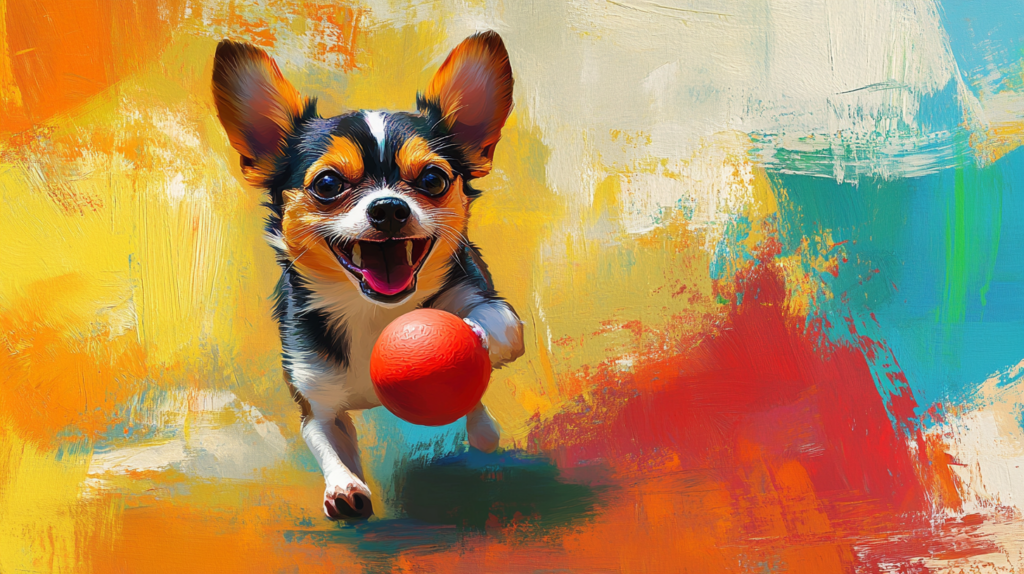
Preventive Measures for a Healthy Chihuahua Life
Taking proactive steps is key to preventing health issues in Chihuahuas. Here are some essential measures every responsible owner should consider:
1. Regular Veterinary Check-ups
Schedule at least once-a-year visits to your vet. Regular check-ups help detect health problems before they become serious. Your vet can also provide necessary vaccinations, keeping your furry friend protected against diseases.
2. Vaccinations
Ensure your Chihuahua receives all required vaccinations timely. These can prevent contagious diseases that could lead to severe health complications.
3. Early Socialization
Introduce your Chihuahua to various people, pets, and environments early on. This helps prevent behavioral issues and promotes confidence in new situations.
Environmental Considerations: Keeping Your Chihuahua Comfortable Year-Round
Chihuahuas may be small, but they have big needs regarding their environment. Their unique characteristics make them particularly sensitive to temperature fluctuations. Here’s how to keep your little buddy cozy:
1. Temperature Sensitivity in Small Dogs
Chihuahuas are prone to temperature extremes due to their small size and low body fat. Ensure they are kept warm during winter months with sweaters or jackets when outside.
2. Summer Precautions
On hot days, provide plenty of water and avoid prolonged exposure to direct sunlight. Consider pet-safe cooling mats or shaded areas for outdoor playtime.
3. Indoor Comfort
Maintain a comfortable indoor temperature year-round. Avoid drafts from windows or doors and ensure there are warm spots for them to curl up.
Understanding how environmental factors impact Chihuahua health allows you to take the necessary precautions. Recognizing their sensitivity will enhance their comfort and well-being while reducing the risk of health complications related to extreme temperatures.
Incorporating these preventive measures into your routine can significantly improve the quality of life for your Chihuahua, ensuring they remain happy and healthy throughout their years!

Aging Gracefully: Understanding the Lifespan and Aging Issues in Chihuahuas
Chihuahuas typically enjoy a lifespan of 12 to 16 years, making them one of the longest-living dog breeds. As they age, several changes may occur:
1. Physical Changes
Expect to see weight gain or loss, reduced energy levels, and potential mobility issues as your Chihuahua ages.
2. Cognitive Decline
Just like humans, Chihuahuas can experience dementia or cognitive dysfunction syndrome (CDS), leading to disorientation or memory loss.
3. Health Monitoring
Regular vet visits become essential for early detection of age-related conditions.
Special care requirements during different life stages ensure optimal Chihuahua health:
- Puppy Stage (0-1 year):
- Focus on vaccinations and socialization.
- Introduce a balanced diet tailored to their growth needs.
- Adult Stage (1-7 years):
- Regular exercise routines maintain their physical fitness.
- Dental hygiene becomes crucial; regular brushing is advised.
- Senior Stage (7+ years):
- Frequent veterinary check-ups to monitor for chronic conditions.
- Adjusting diet to support joint health and weight management.
Understanding these aspects of Chihuahua lifespan and aging issues enhances their quality of life while navigating the golden years with love and care.
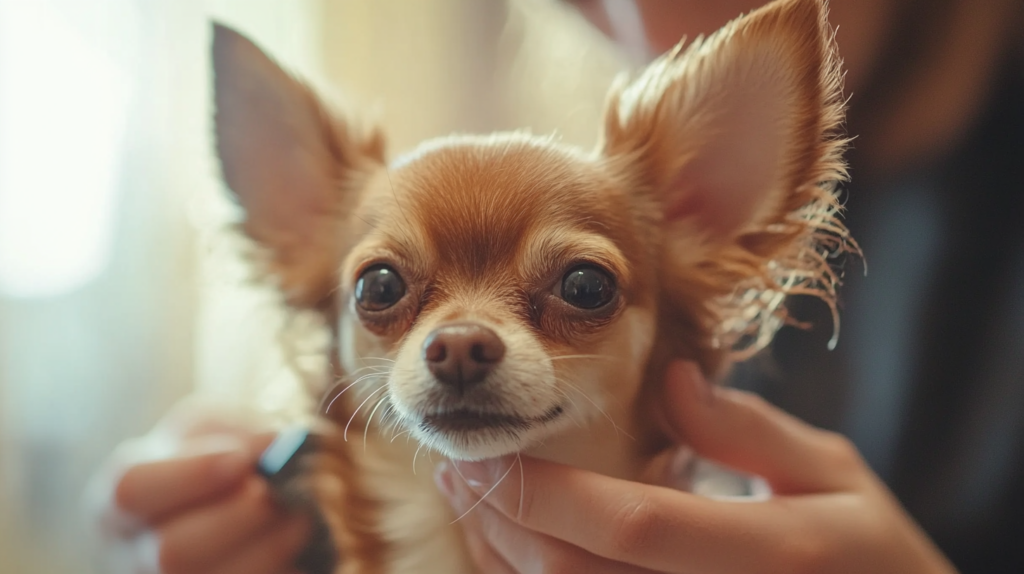
FAQs (Frequently Asked Questions)
What are common health issues in Chihuahuas?
Chihuahuas are prone to several health issues, including eye problems (like glaucoma, dry eye, and cataracts), heart disease (such as congestive heart failure and valvular disease), patellar luxation, dental problems (including periodontal disease), and hypoglycemia. Early detection and management of these conditions are crucial for better outcomes.
How can I maintain my Chihuahua’s dental health?
To maintain your Chihuahua’s dental health, it’s important to provide regular dental care, including brushing their teeth and offering dental treats. Be aware of signs of periodontal disease, such as bad breath or difficulty eating, and consult your veterinarian for professional cleanings as needed.
What should I feed my Chihuahua for optimal health?
Chihuahuas have specific nutritional requirements that include a balanced diet tailored to their size and energy levels. It’s essential to provide high-quality dog food and establish a consistent feeding schedule to ensure they receive the necessary nutrients. Consult your veterinarian for personalized dietary recommendations.
What is patellar luxation in Chihuahuas?
Patellar luxation is a condition where the kneecap dislocates from its normal position. It is common in Chihuahuas and can cause limping or difficulty walking. Treatment options vary based on severity and may include surgical intervention or physical therapy.
How can I help my aging Chihuahua?
As Chihuahuas age, they may experience various changes that require special care. Provide a comfortable living environment, regular veterinary check-ups, and adjust their diet and exercise routine to accommodate their needs. It’s important to monitor for signs of age-related health issues and address them promptly with your vet.
What preventive measures can I take for my Chihuahua’s health?
Preventive measures for maintaining your Chihuahua’s health include regular veterinary check-ups, vaccinations, early socialization, a balanced diet, and consistent exercise. Additionally, be mindful of environmental factors like extreme temperatures that could affect their well-being.






